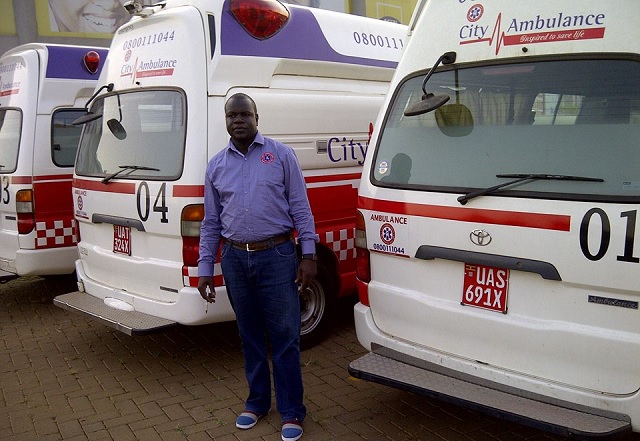
Kampala, Uganda | THE INDEPENDENT | Private emergency care providers are speaking huge sums of money to train their workers abroad in emergency care due to lack of a specialized training facility in the country.
Isaac Mundeyi, the administrator of City Ambulance, a private emergency care provider disclosed this in an interview with Uganda Radio Network.
He revealed while they train some of their nurses in basic emergency care, they have to incur an extra cost of taking them abroad for training in specialized care, something that many emergency care providers are skipping.
As a result, he says, those that eventually venture in the business end up abusing what an ambulance is supposed to be.
According to records from the Health Ministry, there are 95 private ambulance providers across the country, whereas 172 others belong to private not for profit entities.
The government, Dr. John Baptist Waniaye Nambohe, the Commissioner Ambulance Services at Ministry of Health, said owns 173 ambulances which are distributed among facilities across the country.
70% operate within Kampala.
Waniaye admits that they are not sure whether they have all the facilities that are supposed to be in an ambulance because the system is run down and private providers are coming in to fill the void.
He notes that because of the unmet need for emergency services, having an ambulance in place has become a point for gaining political clout.
He says they are now in the process of coming up with the necessary documentation to set up the emergency system that will tackle all the problems being encountered.
According to Waniaye, they are planning to divide the ambulance into three – Type A which is only for patient transport, Type B for universal coverage where they will have medicines and health workers to offer basic life support and Type C where a patient will be able to get advanced life support aboard.
Although he couldn’t attach any anticipated price to this, Waniaye said initially they will have 500 type B and 20 Type C ambulances in addition to 5 boat ambulances and aero medical services that will be offered by the Uganda Police and the army.
Currently, there’s only one Type C ambulance in the whole country being managed by the Uganda Heart Institute. Joseph Kalanzi, a professor at the Department of Emergency Medicine, Makerere University College of Health Science, says setting up a regulating entity alone may not be very helpful for a country with an increasing need for emergency care services.
For Isabella Birungi Byarugaba, who runs City Ambulance, the issue of certification should also be given serious attention now even before bigger policy changes are realized.
She says all certification is done at a center in Mbale, which makes it hard for providers to ferry their workers there, especially with the laxity in regulation.
*****
URN
 The Independent Uganda: You get the Truth we Pay the Price
The Independent Uganda: You get the Truth we Pay the Price


